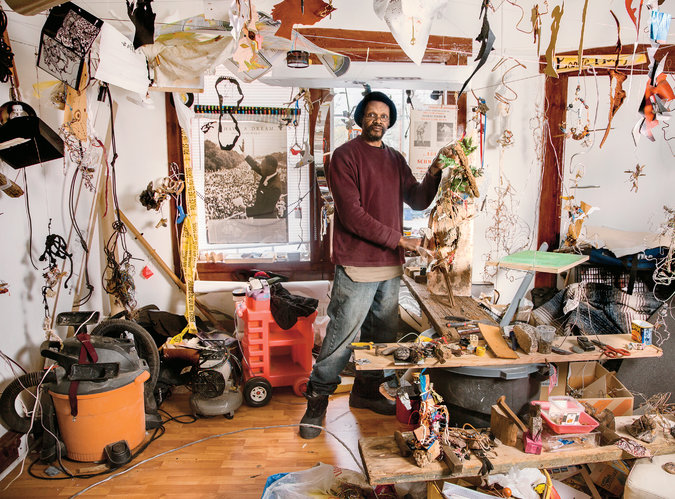One night in October, just a couple blocks from Harvard Square, a young crowd gathered at a music space called the Sinclair to catch a performance by Bill Callahan, the meticulous indie-rock lyricist who has been playing to bookish collegiate types since the early ‘90s. Callahan’s opening act, Lonnie Holley, had been playing to similar audiences for two years. A number of details about Holley made this fact surprising: He was decades older than just about everyone in the club and one of the few African-Americans. He says he grew up the seventh of 27 children in Jim Crow-era Alabama, where his schooling stopped around seventh grade. In his own, possibly unreliable telling, he says the woman who informally adopted him as an infant eventually traded him to another family for a pint of whiskey when he was 4. Holley also says he dug graves, picked trash at a drive-in, drank too much gin, was run over by a car and pronounced brain-dead, picked cotton, became a father at 15 (Holley now has 15 children), worked as a short-order cook at Disney World and did time at a notoriously brutal juvenile facility, the Alabama Industrial School for Negro Children in Mount Meigs.
